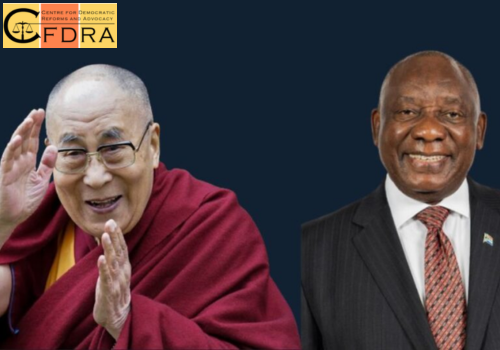Dalai Lama Succession: EU Demands China Respect Religious Freedom!

The European Union (EU) has expressed strong concerns about human rights in China, particularly in Tibet, during the 39th EU-China Human Rights Dialogue.
Key Points:
- The EU emphasized that religious leaders, including the Dalai Lama, should be chosen freely according to religious traditions, without government interference.
- The EU delegation’s rare visit to Tibet highlighted ongoing concerns about human rights violations, limitations on religious freedom, and the preservation of Tibetan culture.
- The EU urged China to address issues like restricted freedoms, labor rights violations, and the detention of activists and religious figures.
EU Recommendations:
- Guarantee full bilingual education to protect Tibetan language and culture.
- Uphold the fundamental freedoms and cultural identity of the Tibetan people.
- Facilitate visits from international observers and civil society organizations.
Dalai Lama Succession:
The EU’s stance on the Dalai Lama succession reflects a broader concern about religious freedom in China. The Dalai Lama is the spiritual leader of Tibetan Buddhism, and the traditional method of choosing his successor is a complex religious process. China has expressed interest in influencing this process, which the EU firmly opposes.
Looking Forward:
The EU’s call for religious freedom and its emphasis on respecting the traditional selection of the Dalai Lama represent a significant pushback against Chinese influence. The success of these efforts will depend on continued pressure from the international community and ongoing dialogue with China.


